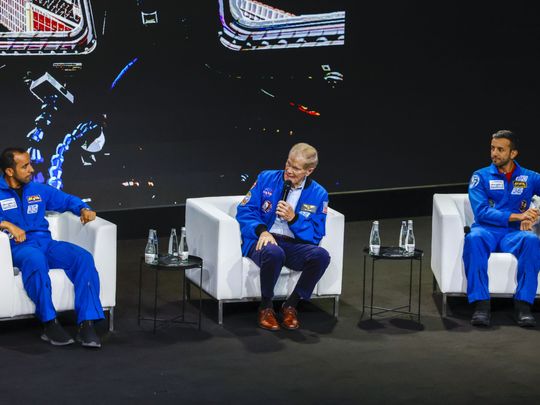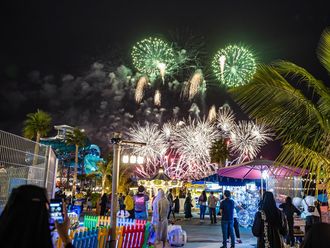
Dubai: NASA has unveiled a new US Greenhouse Gas Centre, which, the American space agency’s administrator says can detect global methane emission at the microscopic level.
Top leaders of NASA and the US Environmental Protection Agency (EPA) unveiled the US Greenhouse Gas Centre at the UN Climate Conference COP28 in Expo City Dubai on Monday.
According to NASA Administrator Bill Nelson, the Centre is another way the Biden-Harris Administration is working to make critical data available to more people – from scientists running data analyses, to government officials making decisions on climate policy, to members of the public who want to understand how climate change will affect them.
Against the backdrop of COP28, Nelson on Tuesday spoke along with two UAE astronauts, who have been to space, at a ‘Future Talk’ session organised by the Museum of the Future and the Mohammed Bin Rashid Space Centre (MBRS) in Dubai.
Website for real-time data
He said that the National Aeronautics and Space Administration typically known for space exploration, is also a climate agency, utilising instruments on spacecraft and the space station to provide real-time data on Earth.
He said the newly launched Greenhouse Gas Centre will be under a new website (earth.gov), offering detailed insights into carbon dioxide and methane emissions.
Nelson revealed that NASA’s Earth Surface Mineral Dust Source Investigation (EMIT) imaging spectrometer located on the International Space Station (ISS) unexpectedly identified specific methane emission sources. The original purpose of EMIT was to determine mineral dust from sandstorms which can affect the atmosphere.
How harmful is methane
Addressing the space enthusiasts and students among the audience, Nelson pointed out that methane is one of the most potent Greenhouse gases. “What is a Greenhouse gas? It goes high up into the atmosphere and creates a glass ceiling…The sun’s rays come in and reflect off the Earth…Without a ceiling, some of them would radiate that heat back out into space. But the glass ceiling of Greenhouse gases, carbon dioxide and methane, form a glass ceiling that traps the heat and the Earth continues to heat up,” he explained.
Methane warms the Earth 86 times more than CO2 within a two-decade span. Cutting methane emissions can quickly curb temperature rises, with methane contributing to over a third of the 0.5°C temperature increase since pre-industrial times.
Nelson, and two UAE astronauts – Dr Sultan Al Neyadi, and Hazzaa Al Mansoori—who have flown to space in three different decades on three different spaceships, also shared the overview effect of watching the impact of climate change on the “mothership” called Earth.
Space unites humans
They also spoke about how space becomes the only place where there are no political or religious boundaries, uniting even the arch-rivals US and Russia onboard the ISS along with astronauts from other countries.
Dr Al Neyadi, who recently completed the longest Arab space mission onboard the ISS, said: “I worked aboard the ISS for six months with Russians and Americans and conducted the mission as a family. Our goal was to push the boundaries of exploration, and if this is applicable in space, it is definitely applicable here on Earth.”
Al Mansoori, the first Emirati astronaut to go to space in 2019, said space unites people during the training phase and while conducting missions also.
How Al Neyadi became a pilot
He shared their experiences of training with NASA astronauts. It is during one of those trainings, called T-38 course, that Dr Al Neyadi fulfilled his wish to become a pilot, by learning to fly a T-38 supersonic trainer jet, revealed Al Mansoori, who was a fighter jet pilot with the UAE military before becoming an astronaut.
During this year’s Dubai Airshow last month, both Emirati astronauts took part in a breathtaking air parade with the UAE’s national aerobatic team Fursan Al Emarat and conducted a colourful fly-past in Dubai skies.
Khalfan Belhoul, CEO of Dubai Future Foundation, which runs the MOTF, Martina A Strong, US Ambassador to the UAE, and Salem Humaid Al Marri, director general of MBRSC, also spoke at the Future Talk session.






